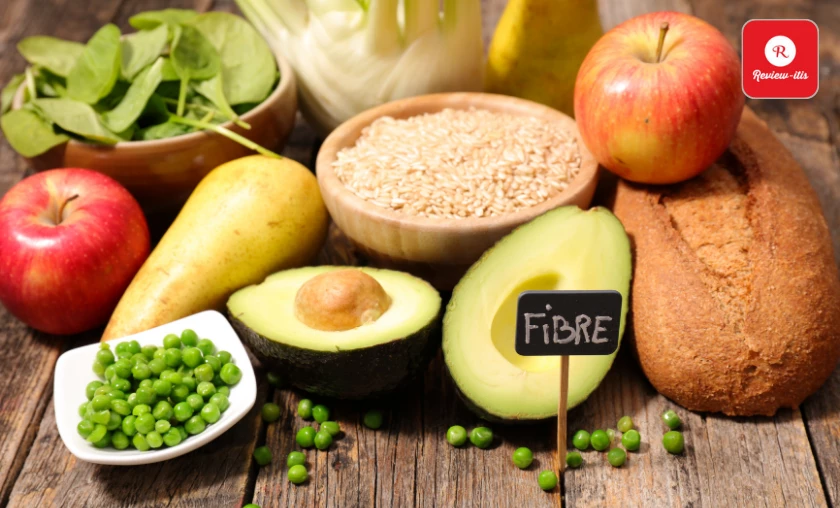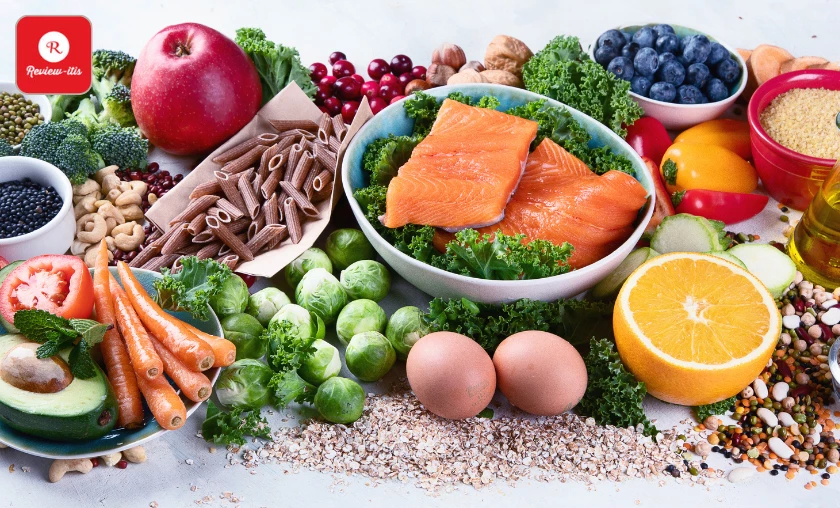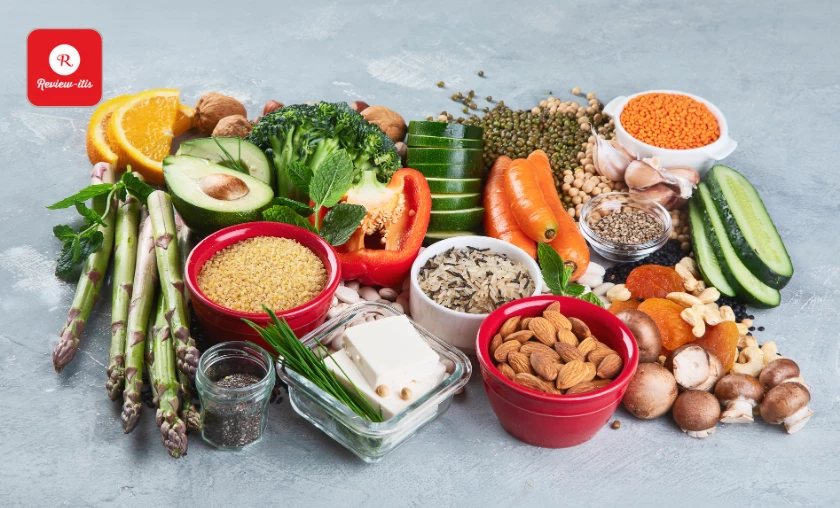Hey, Healthy! Are you struggling with constipation? It seems like you need to know about nutrition for constipation. Here it is. Explore it…
It could be a more comfortable experience. But, did you know that what your eat can play a big role in bringing relief? That’s right. Some foods can help alleviate the symptoms, while others can worsen things.
Lucky for us, Emma Slattery, a clinical dietitian at Johns Hopkins Medicine, has some valuable insights on the matter. She can provide you with a list of foods that will help with constipation and the ones to steer clear of when you’re feeling backed up. So, let’s get started and get you feeling better!
Table of Contents
Diet & Constipation

If you’re dealing with constipation, I feel you. It can be an occasional annoyance or a chronic condition that seriously affects your daily life. While the causes can vary from a sedentary lifestyle to more complex gastrointestinal conditions, there’s one thing that almost always plays a role – food.
That’s right, food is a crucial factor in almost every case of constipation. And according to Emma Slattery, a clinical dietitian at Johns Hopkins Medicine, fiber is one of the most important components of foods that can help relieve constipation. In fact, fiber is a key element in poop itself! It not only adds bulk to your stool but also provides a range of other digestive benefits. So, if you’re struggling with constipation, consider adding fiber and high-fiber recipes to your diet to see if it helps.
- Fiber supports the microbiome: A healthy balance of bacteria in the digestive tract.
- Fiber also helps gut motility: A coordination of muscle contractions in the intestines that push food along the process of digestive.
Foods High in Fiber

When it comes to fiber in food, there’re two types – soluble fiber and insoluble fiber. And according to Emma Slattery, a clinical dietitian at Johns Hopkins Medicine, foods that are rich in either or both of these types can effectively relieve occasional and chronic constipation.
So, if you want to add more fiber to your diet to help with constipation, make sure to include foods high in soluble and insoluble fiber. Your gut will thank you!
Insoluble Fiber

According to Emma Slattery, a clinical dietitian at Johns Hopkins Medicine, when we talk about insoluble fiber, we’re referring to what’s commonly known as “roughage.” This is the part of food that our bodies can’t break down during digestion, so it exits our body as it enters.
If you’re looking for foods that are high in insoluble fiber, here are some good options to consider:
- Skins and seeds of fruits and vegetables
- Popcorn
- Leafy greens
- Nuts
- Dried fruit
Soluble Fiber

Remember how I mentioned there are two types of fiber found in food? Well, the second type is soluble fiber, which dissolves in water. According to Emma Slattery, a clinical dietitian at Johns Hopkins Medicine, when soluble fiber is dissolved in water in your digestive tract, it forms a gel-like substance that adds bulk to your stool. This gel also acts as a natural stool softener, making bowel movements easier and more comfortable to pass.
If you’re looking to add more soluble fiber to your diet, here are some great sources to consider:
- Whole grains
- Apples
- Bananas
- Cooked vegetables
- Oatmeal
If you wanna add more fiber to your diet to relieve constipation, you’ll be glad to know that some of the best foods for this purpose contain both fiber types. For instance, potatoes and apples are excellent sources of soluble fiber, while their skins are rich in insoluble fiber. So, make sure to eat your fruits and veggies with the skin on to get the full benefit of both types of fiber!
Eat More Fiber to Relieve Constipation

Are you struggling with occasional or chronic constipation? If so, adding more fiber to your diet can help. According to Emma Slattery, a clinical dietitian at Johns Hopkins Medicine, increasing your fiber intake for a few days can be enough to get your bowel movements back on track if you’re dealing with occasional constipation. However, for chronic constipation, it’s best to consult with a dietitian who can help you create a long-term eating plan that’s rich in fiber.
Emma recommends gradually working up to consuming 25-30 grams of fiber per day for women & 30-38 grams for men. With the right approach and a bit of patience, you can find relief from constipation and achieve a healthier digestive system.
Increase Fiber Gradually

As you work on increasing your fiber intake, it’s important to take things slowly and steadily, says Emma Slattery. If you’re used to consuming a low-fiber diet, suddenly adding a lot of fiber all at once can worsen your constipation and cause unpleasant symptoms such as gas, cramping, or bloating.
Instead, the key is to gradually incorporate more high-fiber foods into your diet over time. This allows your digestive system to adjust and acclimate to the changes. You can successfully manage constipation and enjoy a healthier gut by being patient and consistent with your dietary adjustments.
High-Fiber Recipes

- Skillet Zucchini with Chopped Tomatoes
- Red Beans & Rice
- Roasted Asparagus & Mushrooms with Rosemary
- Pear & Quinoa Salad
Are There Foods that Make You Poop Instantly?

Emma Slattery says that prune juice is a good option if you’re looking for natural remedies for constipation. These foods are rich in fiber, which is essential for digestive health, but they also contain another ingredient that can help relieve constipation: sorbitol, a naturally occurring sugar alcohol.
Sorbitol is not broken down during digestion, so when it reaches the colon, the body tries to eliminate it, which can lead to a bowel movement. This makes prunes and prune juice particularly effective for constipation relief. Apple juice also contains sorbitol, although in smaller amounts. For those who dislike prunes or prune juice, apple juice can be a good alternative.
What Else Helps With Constipation? Natural Laxatives, Water, and More

To complement the benefits of fiber, Slattery suggests other tactics that can also help alleviate constipation.
Sip a Hot Beverage

“Need quick relief from constipation? Slattery suggests trying hot beverages, especially those that contain caffeine, like coffee or regular tea. The warmth of the liquid can increase digestive motility, and the caffeine can stimulate the bowels to move,” explains Slattery.
Use Caution With Natural Laxatives

When it comes to over-the-counter constipation supplements, Slattery suggests being cautious and reading labels carefully. Supplements containing psyllium husks or guar gum are generally safe for most people when used occasionally and as directed.
However, she recommends avoiding other herbal supplements, pills, powders, or laxative “teas,” especially for long-term use. Some of these remedies may not be well-researched or regulated and may cause uncomfortable side effects such as diarrhea, cramping, bloating, or even more serious digestive problems.
Drink More Water for Constipation

Proper hydration is essential for relieving constipation, says Slattery. As fiber works to help bulk up the stool, the large intestine draws water from it to pass out of the body.
So, if you need to drink more water due to a medical condition, exercise, hot weather, or for any reason, you can end up with a hard, dried-out stool that is more challenging to pass.
Therefore, as you increase your fiber intake, it’s crucial to drink enough water to maintain adequate hydration levels, Slattery advises.
Can Exercise Help Constipation?

“Without a doubt, physical activity is essential for relieving constipation,” according to Slattery. “Even if you don’t feel like exercising due to feeling bloated or constipated, moving your body can help you pass stools.”
Foods to Avoid When Constipated

If you’re struggling with constipation, it’s best to avoid high-fat foods like those that are greasy or buttery. These foods can slow down your digestion & make your constipation worse, according to Slattery. Processed meats, fried foods, and commercially baked goods are some of the high-fat foods that you should avoid.
She notes that cheese, in particular, can be a big contributor to constipation. This is because high-fat foods are low in fiber and can delay motility, meaning it takes longer for food to move through your digestive system.
Conclusion
Well, there you have it! You now have a comprehensive guide to help you deal with constipation through your diet and nutrition. Remember, constipation can be uncomfortable and even painful, but it doesn’t have to be a permanent part of your life.
Adjusting your eating habits, incorporating fiber-rich foods, drinking plenty of water, and staying active can help alleviate your symptoms and achieve better digestive health. So, start making these changes today and experience the difference in your bowel movements and overall well-being. Here’s to happy and healthy digestion!
Nutrition for Constipation: FAQ’s
If someone is constipated, does it matter when they eat?
“As far as research goes, there isn’t much to say about this topic,” says Slattery. “However, we do know that eating triggers the digestive system from start to finish. Therefore, consistent daily meals may theoretically promote regular bowel movements.”
Are there particular diets that cause constipation?
Well, let’s talk about the keto diet. It’s known to be quite heavy on the fat side, which, unfortunately, can lead to constipation. If you’re on a keto diet for health reasons and you find yourself struggling with this issue, it’s best to consult a dietitian or doctor to help you balance your dietary needs with some low-carb fiber sources, such as leafy greens.
Regarding digestive issues, we usually recommend the BRAT diet, which consists of bananas, rice, applesauce, and toast. It can be helpful in managing both constipation and diarrhea.
As for intermittent fasting, it’s worth noting that its effects on bowel movements can vary widely since there are so many different schedules to choose from.
Suppose you must determine how your diet might impact your health, including constipation and other issues. In that case, it’s always a good idea to reach out to a clinical dietitian or a doctor for guidance.
For more amazing articles related to Health, Checkout Now with a click
To read more similar articles, click here.
Thanks for visiting our Website. If you appreciate our work, kindly show us some support in our comments section. 🙂